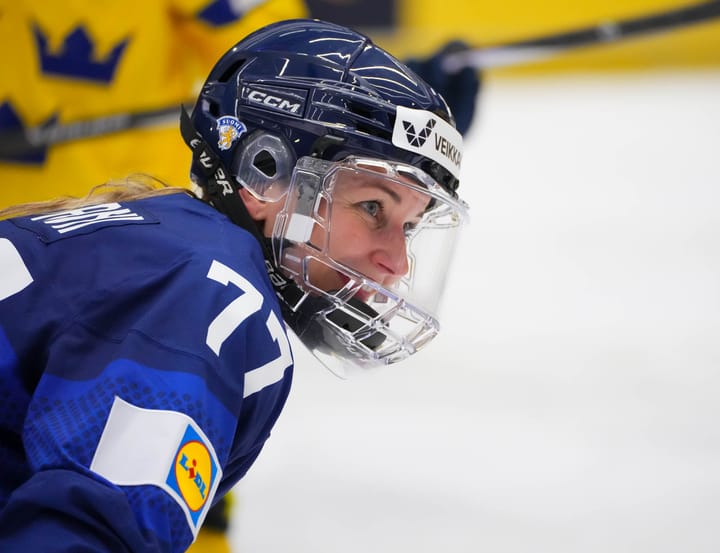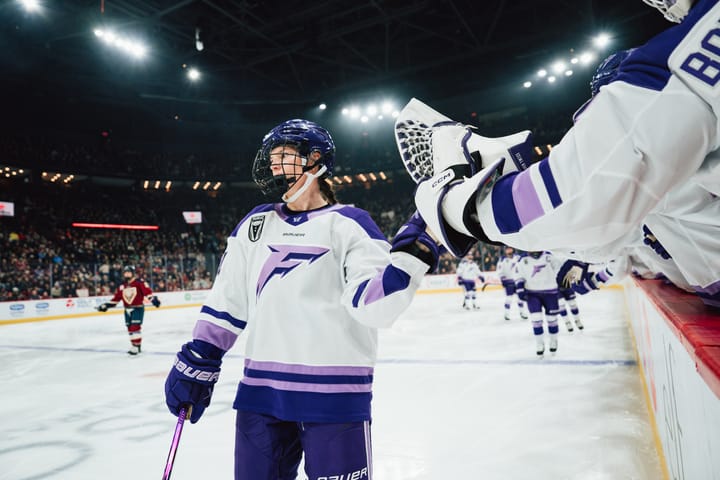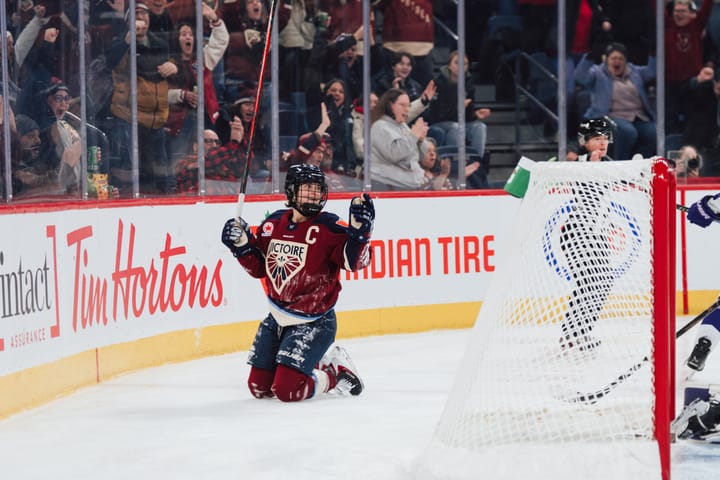Team Switzerland has momentum on its side heading into quarterfinals
The Swiss are 3-0-0 and are brimming with confidence. But can they win two more games to secure a second consecutive Olympic medal?
With the preliminary round of the PyeongChang Olympics over, Team Switzerland has emerged as the class of Group B. The Swiss unmade a united Team Korea by a score of 8-0 to start the tournament, weathered the storm against Japan with a 3-1 win, and edged out Sweden 2-1 on Valentine’s Day. As a result, Eisgenossinnen is just two wins away from a second consecutive Olympic medal.
Switzerland’s dominance over their peers in Group B earned them a meeting with Team OAR in the quarterfinals on Sunday. This current three-game winning streak to begin the PyeongChang Games comes as something of a surprise. Less than a year ago head coach Daniela Diaz’s team nearly lost to the Czech Republic in the relegation round of the 2017 Women’s World Championships.
Leading the way for Switzerland in Korea is 19-year-old forward and Northeastern University commit Alina Müller. She may be a teenager, but Müller’s already an Olympic veteran. In Sochi she became the youngest ice hockey player to win an Olympic medal at the age of 15.
Thus far Müller has carried Switzerland’s offense. She started her Olympic tournament with an unforgettable four goal and two assist game against Team Korea. Since that record-tying performance the ZSC Lions star has scored two more goals and added another assist. She’s leading all skaters in scoring at PyeongChang. Müller, for the moment, looks close to unstoppable.
As brilliant as Müller has been, Switzerland’s most valuable player thus far has been decorated veteran goaltender Florence Schelling. She is in the prime of her playing career and it shows. Through three games in PyeongChang the best goaltender of the Sochi Olympics has a .975 save percentage.
The highlight of Schelling’s Olympics thus far is her 37 save performance against Team Japan. The skaters playing in front of her managed to get just 18 shots on net, but Switzerland capitalized on two power plays and found a way to win. Anyone who watched that game knows that Schelling stole it for Switzerland. Schelling offered a brilliant encore two days later against Team Sweden when she held Damkronorna to one goal on 34 shots. With her on top of her game almost anything is possible for Eisgenossinnen.
Diaz’s team will face a unique challenge in OAR in the quarterfinals. The Russians have a young team with a lot of potential, but thus far they have played with a lack of structure. OAR was found wanting in the preliminary stage of the tournament. They were outscored 15-1 by powerhouses USA, Canada, and Finland. Momentum is not on OAR’s side.
If Switzerland’s power play — fueled by the precision passing of veteran Christine Meier — remains as hot as it was in the preliminary stage, OAR may be doomed already. The Swiss enter the quarterfinals with a peerless 41.67 percent success rate on the power play. And that number is not inflated by Switzerland’s 8-0 rout of Korea; Switzerland scored two power play goals against both the Japanese and the Swedes.
OAR appears to be in transition; a team waiting for its cabal of young forwards to define its identity. The Russians have just six players with previous Olympic experience. Switzerland, on the other hand, is a team with 14 players who have bronze medals from Sochi.
The Swiss have walked this road before, and just like in Sochi they have momentum on their side.





Comments ()